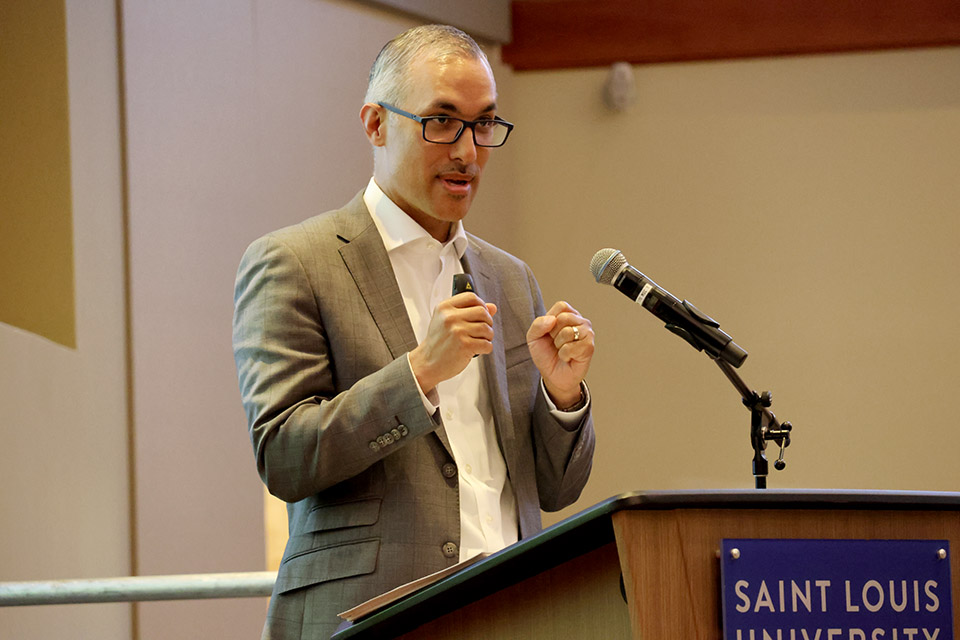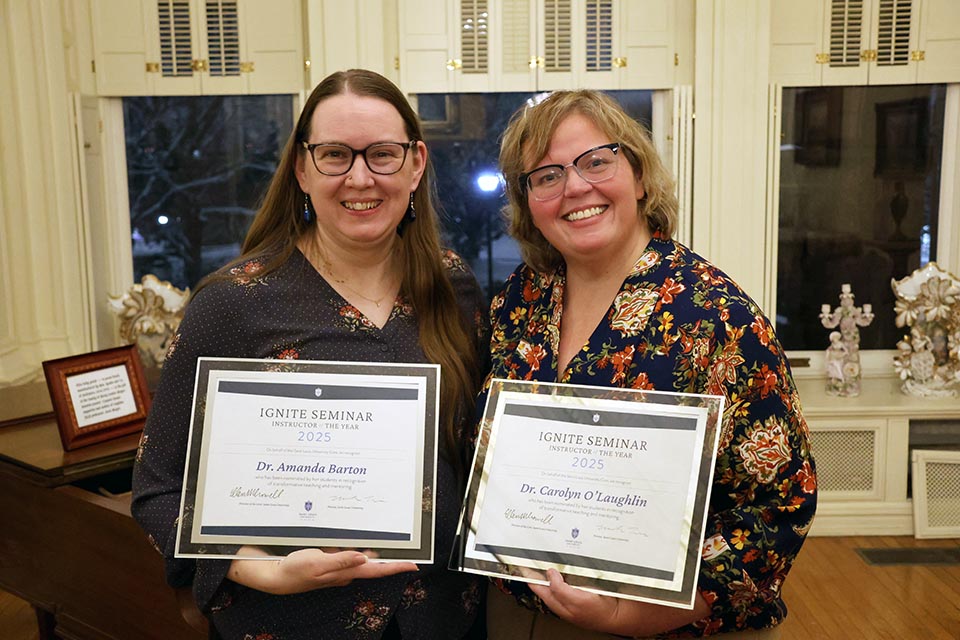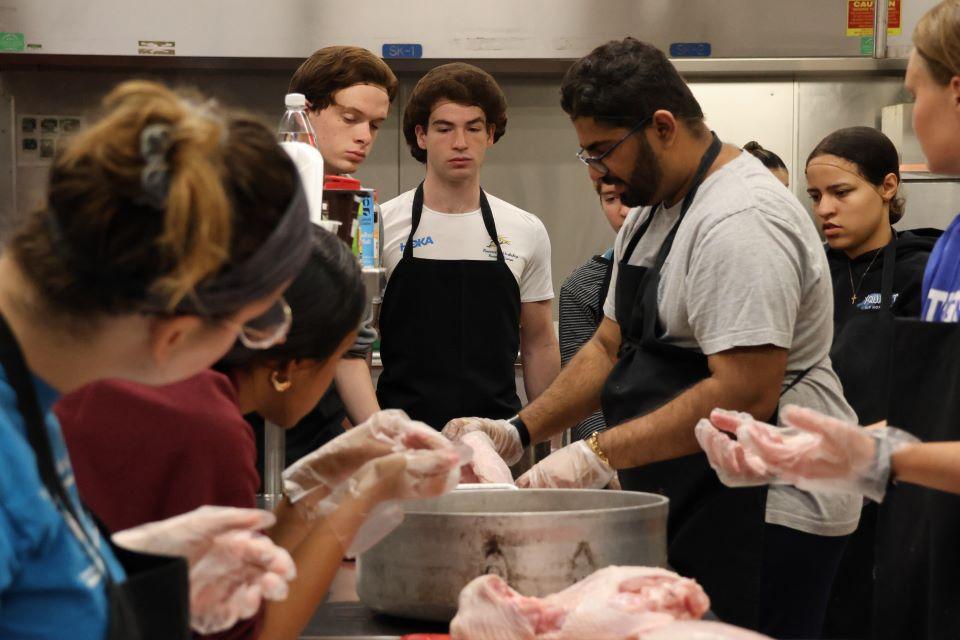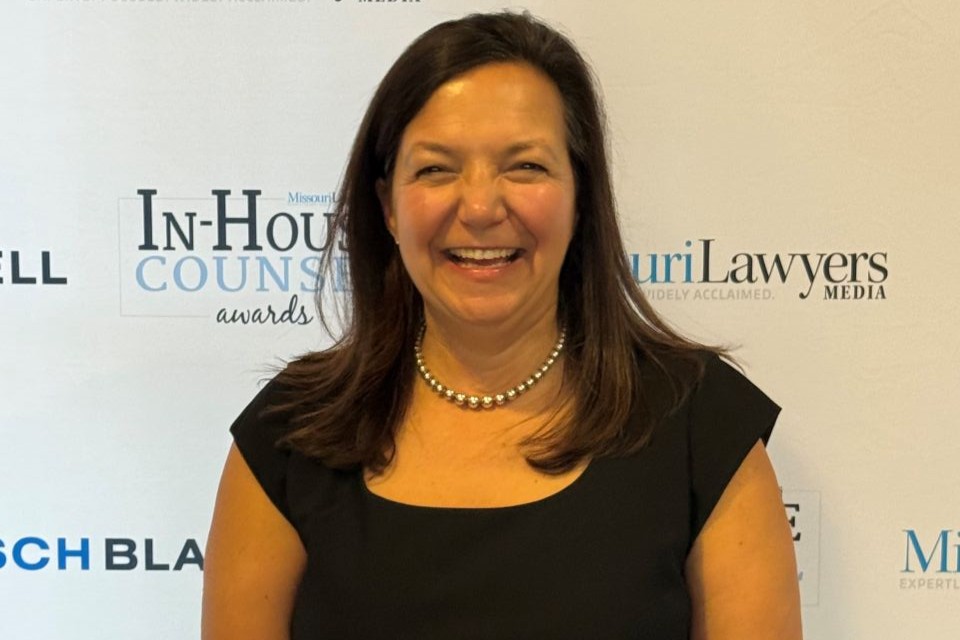Atlas Week Speaker Shares History, Benefits of Public Health
04/11/2025
Daniel Dawes, J.D., had a message for the attendees in the Wool Ballroom on Thursday night – keep doing what you’re doing.
Dawes, a health equity and policy expert, delivered the 2025 Atlas Week Signature Symposium. His remarks were tied to the theme of this year’s Atlas Week – "From Inequality to Justice: Transforming Global Health through Social Change."

Daniel Dawes, J.D., delivered the Atlas Week Signature Symposium on Thursday, April 10, in the Wool Ballroom. Photo by Joe Barker.
Dawes provided a history of public health efforts and stressed their importance to improving lives. The work to improve public health has not always been a straight line. Dawes noted that throughout history there have been steps forward followed by periods of steps back.
“We have always been able to weather previous storms and periods of retrenchment because Saint Louis University has always led from the front when it comes to social mission and the advancement of healthy equity for all groups,” he said. “That is precisely what I hope you all in this room continue to do.”
Dawes’ view of SLU was shaped by a previous visit to the University. He said he previously spoke at the University as part of SLU’s bicentennial celebration and came away impressed.
“I left feeling that these are the folks that get the social mission,” he said. “They understand that we are working assiduously to create a more healthy, equitable, and inclusive society.”
During his lecture, Dawes talked about the milestones of public health like the passage of the Civil Rights Act and the Affordable Care Act. He also shared his insight into the impact of policy on public health. For example, he noted that the large policy to expand the interstate system left people near the new roads with higher rates of asthma.
Dawes talked about the importance of working to improve public health to improve the lives of everyone. To do this, he said disparities must be addressed and rectified. At the end of his remarks, Dawes issued a challenge to those in attendance.
“Today I want to call upon each of us to affirm our commitment to dismantle structural racism and advance health equity for all groups,” he said. “To use our knowledge, our voice, and our collective power to drive progress forward. To dissent, not just in words but in action. Justice is not inevitable, progress is not guaranteed. It is up to us, and I believe that together we can move the nation closer to the promise of healthy equity for all. We must dissent because America can’t do better, America must do better. ”
Saint Louis University's Atlas Program brings together members of the SLU community to focus on the global challenges that confront us in the 21st century. The theme for Atlas Week 2025 is "From Inequality to Justice: Transforming Global Health through Social Change" and focuses on the interconnectedness of global health and social justice while encouraging deeper discussion on present global health challenges.
The Atlas Week Signature Symposium is presented by internationally renowned speakers who have dedicated their lives to issues of political and social justice. Dawes was the 25th speaker in the history of the program.
Dawes is a health equity and policy expert, educator, and researcher who currently serves as Senior Vice President, Global Health, and is the founding Dean of the School of Global Health at Meharry Medical College, which is the first school of its kind in the United States. Before that, he served as executive director of the Satcher Health Leadership Institute at Morehouse School of Medicine and is a professor of health law, policy and management.
Latest Newslink
- University Core Honors Ignite Seminar InstructorsTwo Ignite Seminar instructors have been recognized with the 2025 Ignite Instructor of the Year Award. At a ceremony Tuesday night in Cupples House, Carolyn O'Laughlin, Ph.D. (Education) and Amanda Barton, Ph.D. (RISE Counselor) were honored by the University Core after being nominated by students in their Ignite Seminars.
- Sharing Throughout the Season: Ways to Give Back at SLUThis holiday season, Saint Louis University is highlighting organizations that could benefit from the gift of time or donations, including the University's annual Blue Santa toy drive.
- SLU Wins Collegiate Chess League Back-to-Back SeasonsThe SLU Chess Team won back-to-back Collegiate Chess League titles, securing the Fall 2025 season championship. This win is SLU's fifth Collegiate Chess League title in the last six seasons.
- TurkeyPalooza Food Drive Helps Provide a Thanksgiving Meal to Individuals, Families in NeedTurkeyPalooza, the annual Campus Kitchen food drive and Thanksgiving food prep event, resulted in 200 individual Thanksgiving meals and 40 meal-prep boxes for families in the St. Louis community.
- Saint Louis University's Moore Honored by Missouri Lawyers WeeklySenior Associate General Counsel Christina Moore, J.D., has been recognized by Missouri Lawyers Weekly for her work as in-house counsel at a non-profit or government organization. Moore (Law '02) was honored at the In-House Counsel Awards, an event designed to recognize attorneys from different sectors for their contributions and work.
- SLU Study Shows Heat Can Cut Insect Survival but Boost ReproductionRising global temperatures are changing the rules for survival—and reproduction—for many species. A new study from Saint Louis University reveals that predicting which species will persist under climate change is more complex than focusing solely on survival.













